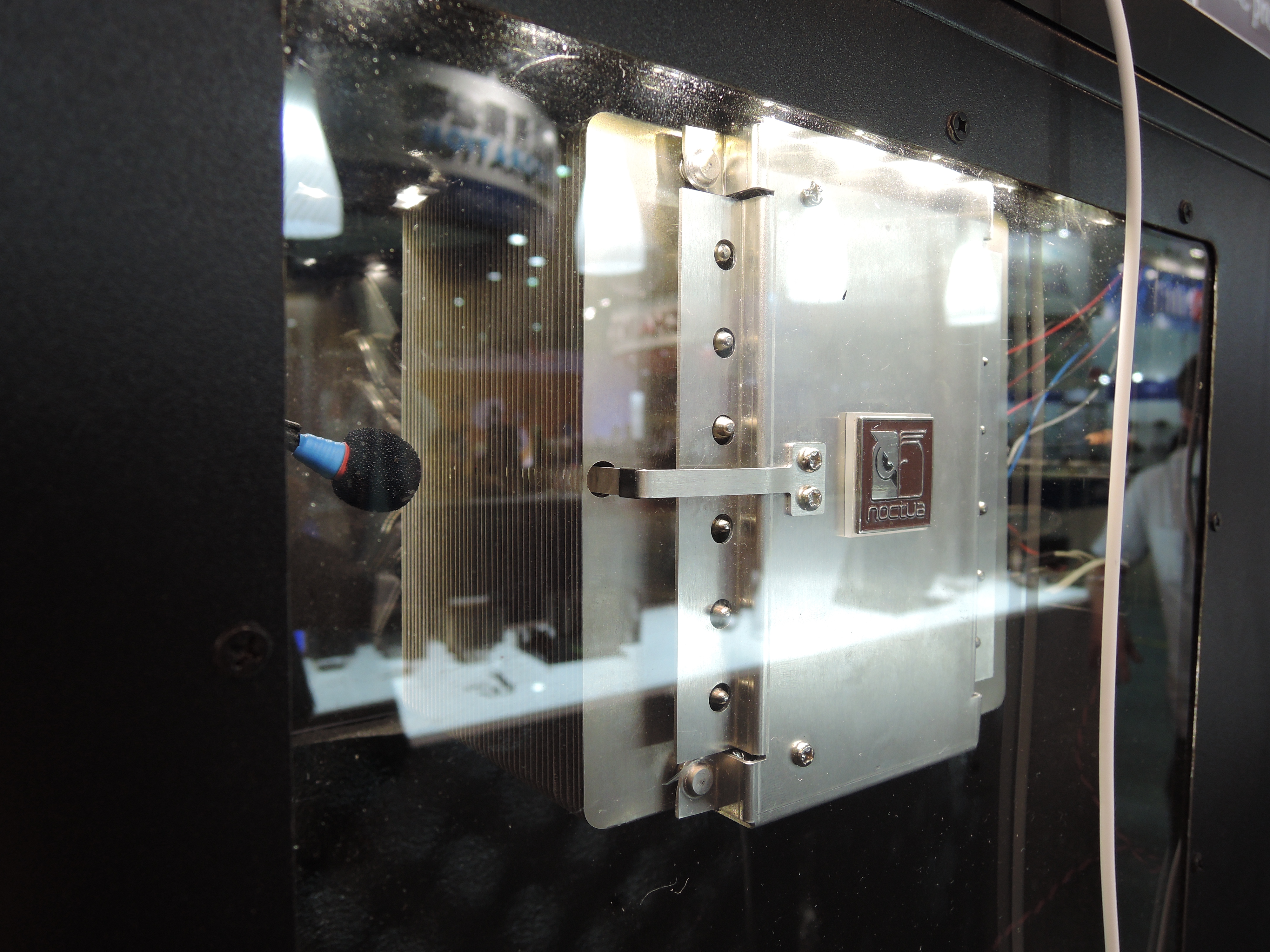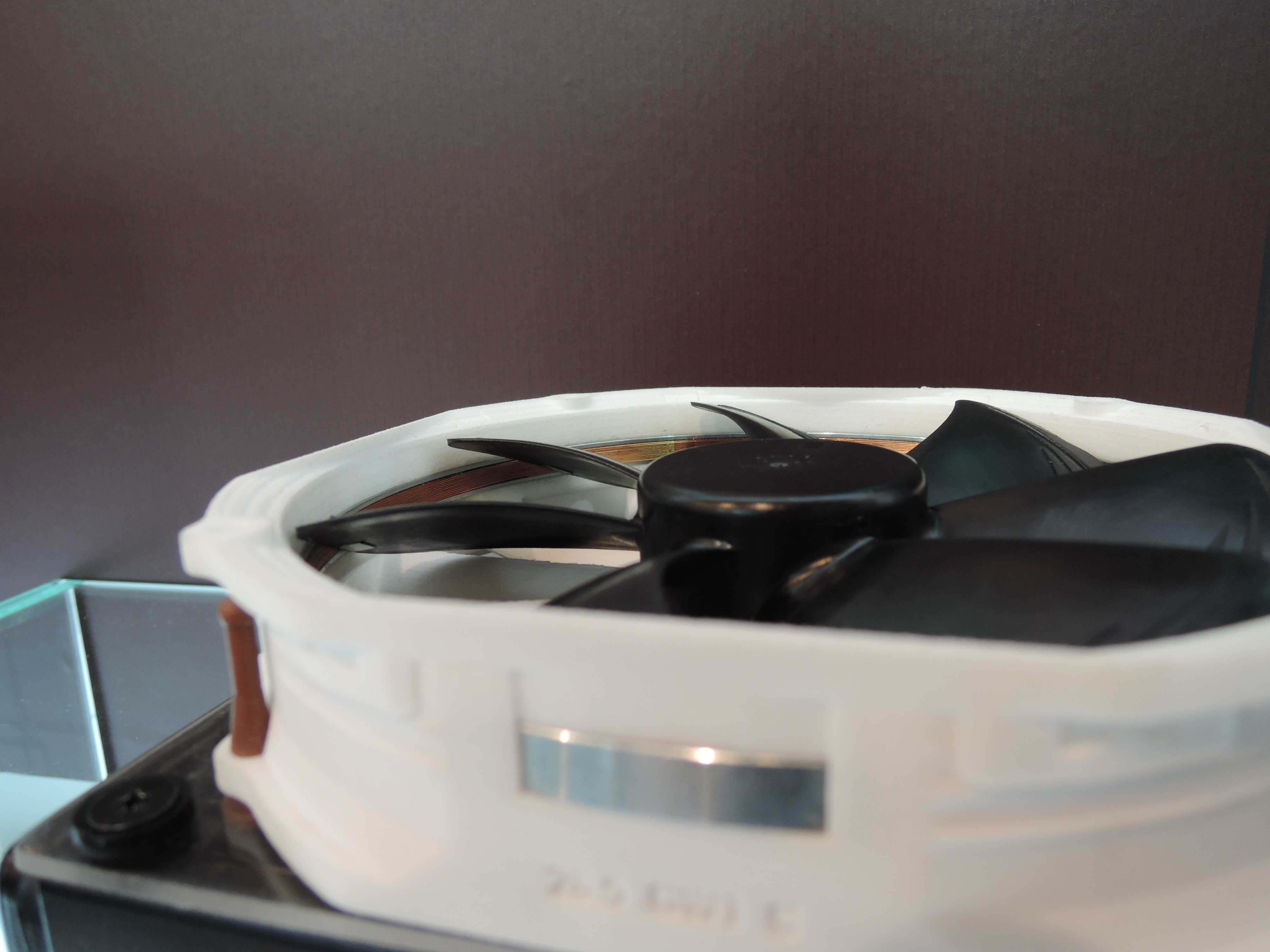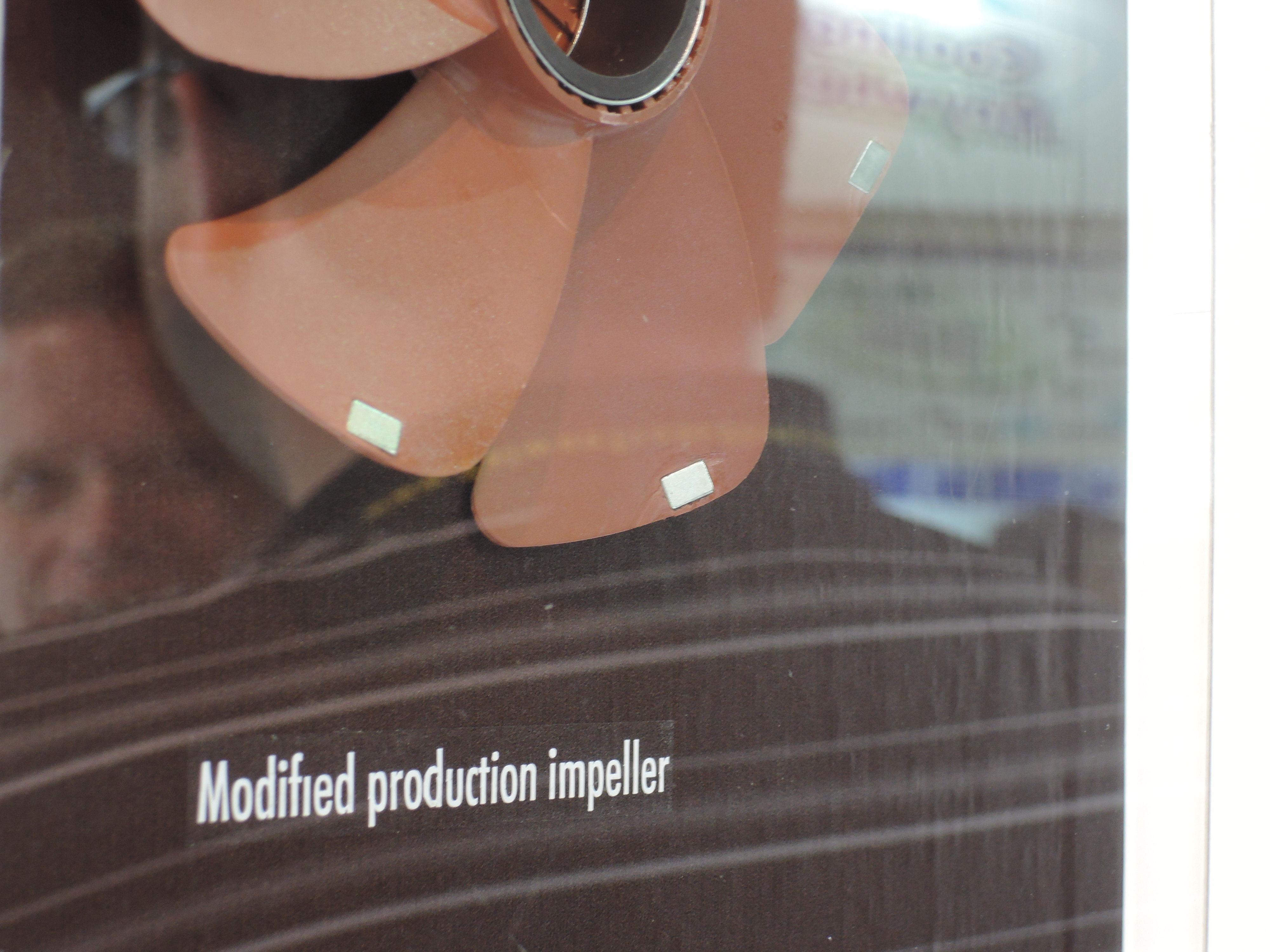Noctua Evolves Fan Active Noise Cancellation Approach
Noctua showed off its Active Noise Cancellation technology at Computex 2014.
Editor's Note: While Computex took place last week and all of the news announcements are behind us, we're still sorting through hundreds of in-person meetings and demonstrations, picking out just a few more of the most interesting items we saw up close.
Not only did Noctua reveal new fans and new CPU coolers at Computex 2014, the company also gave an update on its Active Noise Cancellation concept. Noctua has been working on bringing the production cost down as well as improving little details in the manufacturing.
Active Noise Cancellation is a fairly simple concept: one sound wave can be used to cancel out another. But the problem is far more complex when trying to cancel out fan noise as sound is emitted in rotational pressure fields, according to Jakob Dellinger, Head of Press and PR at Noctua. To cancel out noise emitted by a fan, you have to match the same rotational pressure fields, otherwise the sound waves will work together to make even more noise.
To solve this problem, Noctua built a coil into the fan frame, along with magnets at the tips of the fan blades. Together, this can be used to move the fan blades in such a way that it behaves as a speaker. As such, the source of the noise is also the source of the anti-noise.
This technology does not remove all fan noise. The main noise patterns that are reduced are the peaks in the noise, which are the most unpleasant bits. Dellinger handed us some headphones, which were connected to the in-case microphone, and despite the noise that came from the Computex crowd, we were still able to observe an improvement, very distinctly.
Noctua has been working on a cheaper method of molding the magnets into the tips of the fan blades, as well as managing to source a cheaper ANC controller. Noctua is also finishing off the product firmware.
In addition to using the technology in an air-cooler, Noctua also indicated that it would create kits that can be used with water cooling radiators, the controllers of which would be self-learning so that they would adapt to the different noise patterns created when using different radiators.
Get Tom's Hardware's best news and in-depth reviews, straight to your inbox.
We also finally got an ETA on these products: Q2 or Q3 2015. When we asked about pricing, we got a very simple and clear response: "Expensive."
Follow Niels Broekhuijsen @NBroekhuijsen. Follow us @tomshardware, on Facebook and on Google+.
Niels Broekhuijsen is a Contributing Writer for Tom's Hardware US. He reviews cases, water cooling and pc builds.
-
Leamon There comes a point where you have to realize it's just fan noise. I'm only a foot and a half from mine and the noise doesn't bother me at all. Who is really willing to pay such a high price for this?Reply -
vmem "When we asked about pricing, we got a very simple and clear response: "Expensive.""Reply
well their regular fans are $20-30... so we're probably looking at $50+ fans here :P -
vmem ReplyThere comes a point where you have to realize it's just fan noise. I'm only a foot and a half from mine and the noise doesn't bother me at all. Who is really willing to pay such a high price for this?
I love how some people complain about PC fan noise, go out of their way to build a silent PC, then blast some 12,000U AC unit on high to keep room temperature in check in the summer -
skit75 @RCguitaristReply
Those are nothing compared to the rare earth magnets in your spindle hard drive.... those can nearly take your finger off if you aren't careful. -
segio526 I wonder if this can be adapted to make quieter remote controlled drones and helicopters.Reply -
gm0n3y This is actually really cool. If I could greatly improve the airflow in my case with no increase in noise, I'd be willing to pay a lot more. This could actually make smaller cases with smaller, higher RPM fans more appealing.Reply



